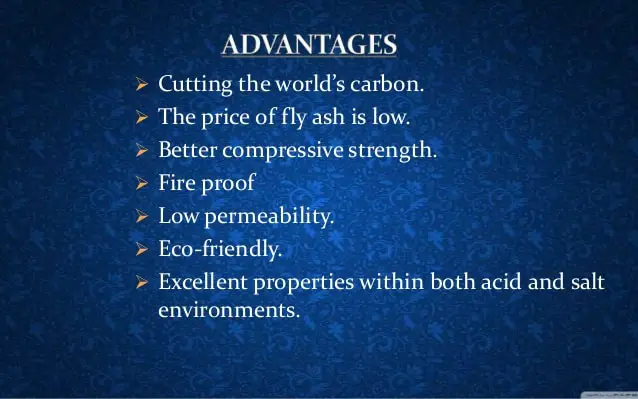Geopolymer concrete is considered to be an innovative material that is a viable alternative to traditional Portland concrete or cement used in transportation infrastructures, certain constructions and offshore builds. It is very resistant to several of the durability issues that can cause traditional concretes to crack and crumble. This is accomplished by using minimally processed natural materials or industrial byproducts. Geopolymer concretes will cure more quickly than Portland concretes. They have obtained most of their strength within 24 hours. Some major pros and cons of geopolymer concrete will be discussed in this article.
Importance of Using Geopolymer Concrete
This type of concrete is starting to revolutionize concrete. It is being used more and more in highway construction projects and offshore applications. It is still a little too pricey for the do-it-yourself projects that abound, but contractors are starting to use it more and more in other construction projects.
Advantages and Disadvantages of Geopolymer Concrete
The main advantages and disadvantages of Geopolymer concrete are listed here.
Advantages of Geopolymer Concrete

It is a newer product that is making traditional concrete look not so spectacular. Here are some of the top advantages of geopolymer concrete.
1. High Strength – it has a high compressive strength that showed higher compressive strength than that of ordinary concrete. It also has rapid strength gain and cures very quickly, making it an excellent option for quick builds.
Geopolymer concrete has high tensile strength. It is less brittle than Portland concrete and can withstand more movement. It is not completely earthquake proof, but does withstand the earth moving better than traditional concrete.
2. Very Low Creep and Shrinkage – shrinkage can cause severe and even dangerous cracks in the concrete from the drying and heating of the concrete or even the evaporation of water from the concrete. Geopolymer concrete does not hydrate; it is not as permeable and will not experience significant shrinkage.
The creep of geopolymer concrete is very low. When speaking of creep in concrete terms it means the tendency of the concrete to become permanently deformed due to the constant forces being applied against it.
3. Resistant to Heat and Cold – It has the ability to stay stable even at temperatures of more than 2200 degrees Fahrenheit. Excessive heat can reduce the stability of concrete causing it to spall or have layers break off. Geopolymer concrete does not experience spalling unless it reaches over 2200 degrees Fahrenheit.
As for cold temperatures, it is resistant to freezing. The pores are very small but water can still enter cured concrete. When temperatures dip to below freezing that water freezes and then expands this will cause cracks to form. Geopolymer concrete will not freeze.
4. Chemical Resistance – it has a very strong chemical resistance. Acids, toxic waste and salt water will not have an effect on geopolymer concrete. Corrosion is not likely to occur with this concrete as it is with traditional Portland concrete.
Disadvantages of Geopolymer Concrete
While geopolymer concrete appears to be the super concrete to take the place of traditional Portland concrete, there are some disadvantages such as:
- Difficult to Create – geopolymer concrete requires special handling needs and is extremely difficult to create. It requires the use of chemicals, such as sodium hydroxide, that can be harmful to humans.
- Pre-Mix Only – geopolymer concrete is sold only as a pre-cast or pre-mix material due to the dangers associated with creating it.
- Geopolymerization Process is Sensitive – this field of study has been proven inconclusive and extremely volatile. Uniformity is lacking.
While the idea of geopolymer concrete seems ideal and could be the best thing to come along since Portland concrete, there are still too many unstable issues that can cause major hiccups in the mixing and application process of the concrete.

